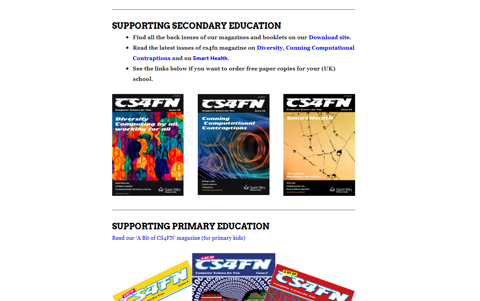Teaching London Computing
CS4FN produces a free magazine twice a year as well as a series of special booklets on diverse subjects including magic, Electronic Engineering and Audio Engineering emphasising their links with computing. The site contains over 1000 articles on many CS related topics. Browse by date or topic.
Additional details
| Year band(s) | 5-6, 7-8, 9-10 |
|---|---|
| Content type | Professional learning |
| Format | Web page |
| Australian Curriculum Digital Technologies code(s) |
AC9TDI10P09
Implement, modify and debug modular programs, applying selected algorithms and data structures, including in an object-oriented programming language
AC9TDI6P05
Implement algorithms as visual programs involving control structures, variables and input
AC9TDI8P09
Implement, modify and debug programs involving control structures and functions in a general-purpose programming language
AC9TDI10P05
Design algorithms involving logical operators and represent them as flowcharts and pseudocode
AC9TDI10P06
Validate algorithms and programs by comparing their output against a range of test cases |
| Keywords | Algorithms, Computing Science, Computer Science, CT, Code, Coding, Programming, Articles |
| Organisation | Queen Mary, University of London |
| Copyright | Queen Mary, University of London 2005-2011. May be subject to Copyright Act statutory licence. |
Related resources
-
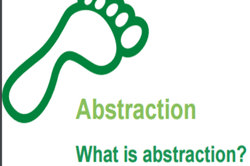
Abstraction
Want to find out more about what abstraction is and its role is in computational thinking? This resource outlines: What is abstraction, why is abstraction important and what abstraction looks like in the primary curriculum. Requires free log-in to access resources.
-

GenAI readiness and implementation modules
As generative AI (GenAI) becomes an increasingly important tool in education, it's essential for teachers to understand both its potential and its limitations. This two-module offering equips teachers with the knowledge and practical skills to use GenAI tools like Copilot effectively in the classroom. Teachers will enhance their own digital literacy while learning how to guide students in using AI responsibly and thoughtfully. By focusing on teacher readiness and practical classroom strategies, the modules support the development of students who can navigate AI in both classroom and everyday contexts. The modules were developed in collaboration with Microsoft.
-
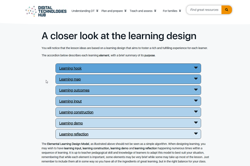
Lesson learning design
The Elemental Learning Design Model has been used to design our lesson plans. This module includes key components to design effective learning opportunities including, learning hook, learning input, learning construction, learning demo and learning reflection within a sequence of learning.
-
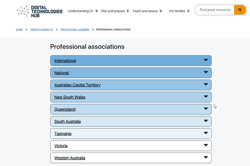
Professional associations
Explore the key Digital Technologies professional associations across each Australian state and territory, as well as the national and international organisations.
-

CAS Barefoot
A broad collection of online resources to support teachers to develop and implement computational thinking, concepts and computer programming. Free log in required to access materials.
-
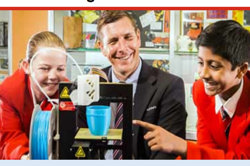
P–10 Technologies Australian Curriculum and resources
This site has developed advice, guidelines and resources developed by the Queensland Curriculum and Assessment Authority (QCAA) to support the implementation of the Technologies Australian Curriculum.
-
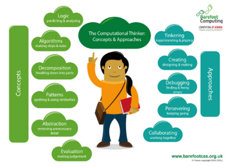
Computational Thinking
This site provides an explanation of computational thinking, aimed at primary teachers. Free log in required.
